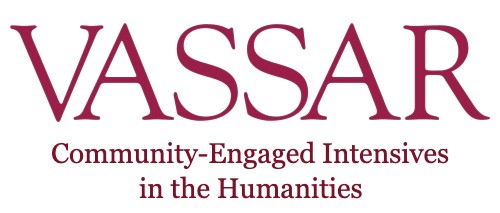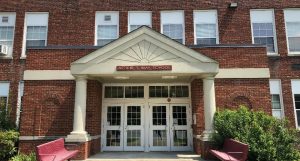Community Schools Research and Practice. | Our Lives, Our World. Teaching and Learning About Human Rights Alongside Youth. | Intersections of Our Homes, Schools and Communities (Spring 2022) | Intergroup Dialogue on Race and Migration (Fall 2021) | MakerBoards: A Return to Play | Intersections of Our Homes, Schools and Communities | French Language Lessons (Spring 2021)| Legal Challenges: Local Interventions in the Criminal-Legal System | Life in a Buddhist Monastery | Writing Medicine | Fundamentals of Grant Writing (Fall 2020) | Music for Empowerment | Intergroup Dialogue on Race and Migration. (Spring 2020)| French Language Lessons (Spring 2020) | Fundamentals of Grant Writing (Spring 2020) | Class Without Walls in Nature
[EDUC] 211, Intergroup Dialogue on Race and Migration, Spring 2020
INSTRUCTOR: Professor Kimberly Williams Brown
CO-FACILITATOR: Maritza Del Razo
THEMATIC CLUSTER: Education/Literacy; Immigration and Forced Displacement
COURSE DESCRIPTION:
In this course, students will learn about, participate in, and critically reflect on intergroup dialogue with the intention of examining power and power structures in our experiences and the world around us concerning race and migration. Intergroup dialogue is an educational model that brings together students from multiple social identity groups in a cooperative, small group, learning environment. Intergroup dialogue often involves members of groups with a history of conflict or limited opportunities to engage in deep and meaningful discussion of controversial, challenging, or divisive issues. The goals of intergroup dialogue include: (1) understanding group beginnings and relationship building; (2) understanding social identities and the role of social structures, power, privilege, and institutions in creating and maintaining inequality; (3) developing intergroup and other communication skills; and (4) planning and enacting collaboration.
DEVELOPMENT TIMELINE:
Stemming from a conversation with the Arthur S. May Elementary school, the instructor met with the Principal of the school to discuss the possibility of connecting Vassar students to students in the elementary school. These discussions were supported by the co-facilitator of the intensive who is also a parent at the school. The co-facilitators spent about two hours a week lesson planning and another two hours grading every week.
OCEL’S ROLE:
Brainstorming ideas for other potential partners. None of those suggestions proved to be viable.
PARTNER:
Arthur S. May Elementary School
FORMAT:
The first 3 weeks we met for two hours every week in class at VC. The second six weeks we met with Arthur S. May students for 1 hour, used 30 minutes to travel and 30 minutes to debrief back on campus.
NUMBER OF STUDENTS: 11
CREDIT VALUE: 0.5
FUNDS REQUESTED FOR:
- Stipend for Co-Facilitator Maritza Del Razo
- Purchase of books
REFLECTIONS:
“The students were deeply impacted by the experience. They said they understood how difficult it is to translate social justice concepts and ideas to younger children and how to channel that frustration into a productive facilitation session. The students appreciated working together to create lessons and to negotiate how to work through each session.”
-Professor Kimberly Williams Brown

